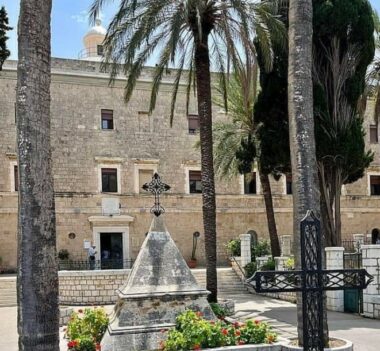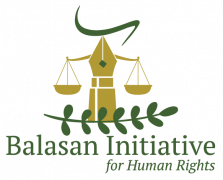
In July 2023, the Mar Elias Monastery and Church in Haifa were attacked multiple times by a group of Jewish Israeli settlers who forced their entry into the Monastery, seeking to seize it under the claim that Jewish graves and a tomb are situated within the church. Over the past few months, Israeli settlers have increasingly displayed aggression towards the Monastery and its worshipers. The attacks against the Monastery began as minor attacks by a small group of settlers, and have escalated into larger and more frequent assaults, culminating in a mass attack on the church with aims to seize it forcefully and entirely. The attacks also included raids, arson attempts, vandalizing, and assaulting Palestinian Christians who were present at the Monastery.
While religion-based attacks have notably intensified since the establishment of the new right-wing Israeli government in December 2022, and as such, the attacks of Jewish Israeli settlers against Christian sites and clergy have also alarmingly intensified[1], the recent attacks on Mar Elias cannot be discerned as exceptional incidents perpetrated by a few Jewish extremists; rather, they represent an escalation in an already alarming context of Israel’s deliberate infringement of any non-Jewish religious rights and its policy to affirm an exclusive Jewish religious and historic narrative over occupied Palestine.[2]
As the pattern of religion-based violence and Christian hate perpetrated by Israeli Jewish settlers has been accelerating in numbers and severity, specifically directed at sacred Christian sites and clergy, it is particularly alarming that the Jewish settler-attackers are protected by the Israeli police, which eliminates any accountability measures and proper enforcement of the law, leaving Palestinian places of worship vulnerable to violence and harm.
This impunity given to the Jewish Israeli settlers has resulted in a heightened frequency and severity of assaults. Not only does the Israeli police fail to protect Christian sites and clergy, rather, the Israeli authorities have responded by arresting and halting the Palestinian Christians who were demonstrating and trying to push the settlers out of the church. This adds tremendously to the challenges Christian communities in Jerusalem and Haifa, in particular, have been witnessing with the surge in attacks on their sacred places.
These acts of aggression against religious sites also encompass Palestinian Muslim sites and religious freedoms. For instance, during Ramadan, Palestinian Muslims have faced multiple instances of Israeli police raids on Al-Aqsa Mosque, the holiest Muslim site in Jerusalem. These raids have resulted in the assault and arrest of worshipers. This situation underscores the importance of recognizing the broader context of attacks on religious freedoms, affecting any non-Jewish sites and faith symbols.
In response to the mounting threat, Palestinians have taken to the streets in front of Mar Elias Monastery, demonstrating their rejection and condemnation of settler attacks and their attempts to storm the holy site. The situation in Mar Elias Monastery is part of a broader pattern of attacks against Palestinian Christians: The increasing harassment by the occupation authorities and settlers on churches and Christian sites on the one hand, and the lack of firm action and accountability from Israeli law enforcement on the other indicate a direct connection to the larger threat targeting Palestinian Christians, which contributes to eroding their presence in their homeland, as well as their fundamental religious rights and freedoms.
Both the recent attack on the Monastery and church, along with the protection provided to the Israeli settlers involved in the attack stand in clear violation of international law and the protection of fundamental human rights granted in international human rights law. Specifically, Israel is bound by the International Covenant on Civil and Political Rights and the Declaration on the Elimination of All Forms of Intolerance and Discrimination Based on Religion or Belief, which prohibit such grave violations to religious rights and freedoms.
The Balasan Initiative for Human Rights seeks to draw
attention to a critical issue that not only profoundly affects Palestinian
Christians, but also reverberates on a broader spectrum that falls under
Israel’s policy of deliberate contempt against any non-Jewish faith symbols,
sites and individuals. In such a grim yet deteriorating context, Christianity
in Palestine faces an alarming threat, as its presence in the land from where
it originated is directly targeted by Jewish extremism and under the protection
of the Israeli forces.
[1] According to Pierbattista Pizzaballa, the Latin Patriarch appointed by the Vatican, there have been escalating attacks on the Christian community in the region due to the current most right-wing government in Israel and its policies with empowering extremists, leading to increased harassment of clergy and the vandalism of religious properties.
[2] For more information on this check the report done by Balasan on The Myth of Religious Freedoms: Israel Increases Restrictions on Palestinian Christians during Holy Week
Admin. (2022, April 22). Israel’s fragmentation of Christian presence & centuries-old religious traditions in Palestine: Increased restrictions on Easter celebrations. Balasan Initiative For Human Rights. https://balasan.org/?p=303
